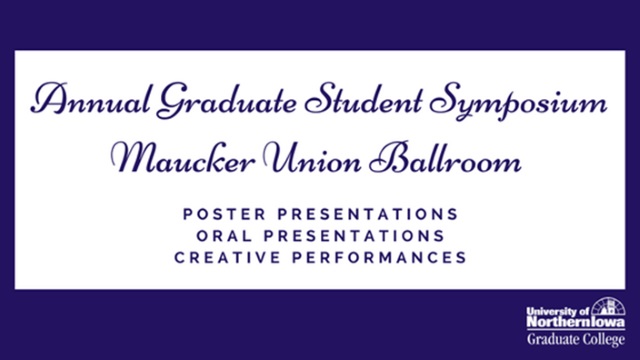
Complete Schedule
ADHD Symptoms and Non-Suicidal Self-Injury in the Transition to College
Presentation Type
Oral Presentation
Keywords
College students--Psychology; Attention-deficit disorder in adolescence; Parasuicide;
Abstract
The transition to college is difficult for many students, but particularly for students with attention-deficit/hyperactivity disorder (ADHD; Arnett, 2000; Lefler et al., 2016). ADHD is also associated with poorer emotional regulation, as well as anxiety and depression (Barkley, 2014). Due to emotion dysregulation and impulsivity, ADHD is a risk factor for non-suicidal self-injury (NSSI; Swanson et al., 2014). The current study sampled first-year college students (n = 142) who completed self-report surveys of ADHD symptoms, impulsivity, NSSI, internalizing symptoms, and college readiness. It was hypothesized that ADHD, impulsivity, and internalizing symptoms would predict higher rates of NSSI and lower college readiness. Internalizing symptoms were positively correlated with NSSI (r = .26, p = .003). Results suggest that college readiness was negatively correlated with internalizing symptoms (r =-.25, p = .004) and inattention symptoms (r = -.232, p = .008). Further, results of the multiple linear regression indicated that ADHD, impulsivity, and internalizing symptoms together were significant in predicting NSSI: (F(3, 121) = 3.11, p = .029, R2 = .07). The individual predictors were examined further and indicated that internalizing symptoms (t = 2.05, p = .043) was the significant predictor in the model. These results suggest that ADHD and internalizing symptoms are associated with lower college readiness; furthermore, internalizing symptoms predicted higher rates of NSSI in the college transition. These findings indicate need for clinical interventions to reduce NSSI and improve college adjustment. Further details and clinical implications will be discussed in the final presentation.
Start Date
3-4-2019 1:00 PM
End Date
3-4-2019 4:00 PM
Faculty Advisor
Dr. Elizabeth Lefler
Department
Department of Psychology
Copyright
©2019 Anna Garner
File Format
application/pdf
Embargo Date
4-30-2019
ADHD Symptoms and Non-Suicidal Self-Injury in the Transition to College
The transition to college is difficult for many students, but particularly for students with attention-deficit/hyperactivity disorder (ADHD; Arnett, 2000; Lefler et al., 2016). ADHD is also associated with poorer emotional regulation, as well as anxiety and depression (Barkley, 2014). Due to emotion dysregulation and impulsivity, ADHD is a risk factor for non-suicidal self-injury (NSSI; Swanson et al., 2014). The current study sampled first-year college students (n = 142) who completed self-report surveys of ADHD symptoms, impulsivity, NSSI, internalizing symptoms, and college readiness. It was hypothesized that ADHD, impulsivity, and internalizing symptoms would predict higher rates of NSSI and lower college readiness. Internalizing symptoms were positively correlated with NSSI (r = .26, p = .003). Results suggest that college readiness was negatively correlated with internalizing symptoms (r =-.25, p = .004) and inattention symptoms (r = -.232, p = .008). Further, results of the multiple linear regression indicated that ADHD, impulsivity, and internalizing symptoms together were significant in predicting NSSI: (F(3, 121) = 3.11, p = .029, R2 = .07). The individual predictors were examined further and indicated that internalizing symptoms (t = 2.05, p = .043) was the significant predictor in the model. These results suggest that ADHD and internalizing symptoms are associated with lower college readiness; furthermore, internalizing symptoms predicted higher rates of NSSI in the college transition. These findings indicate need for clinical interventions to reduce NSSI and improve college adjustment. Further details and clinical implications will be discussed in the final presentation.


